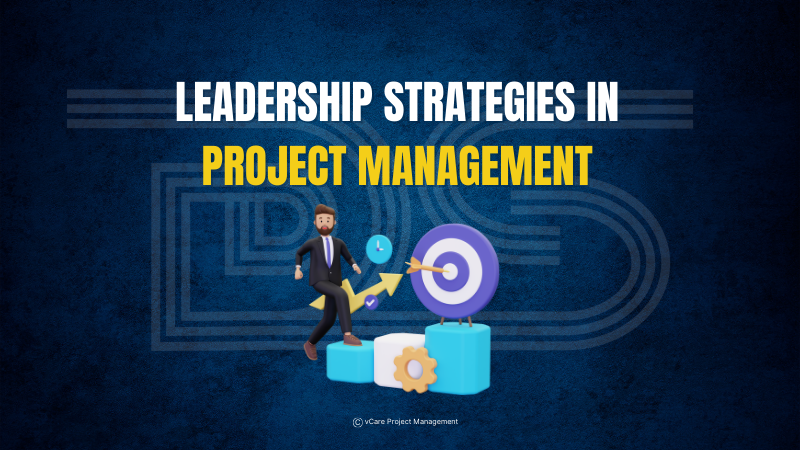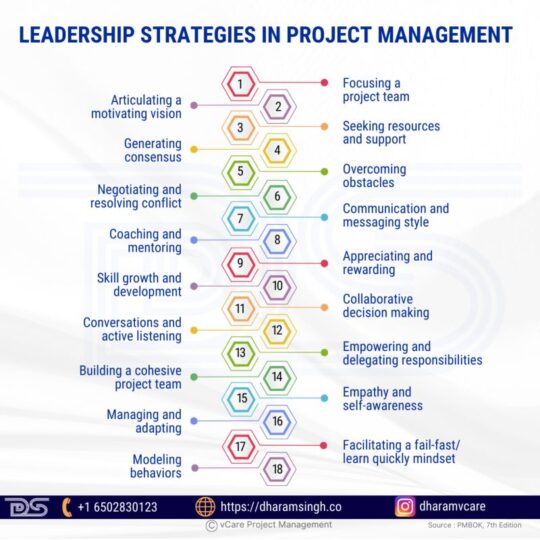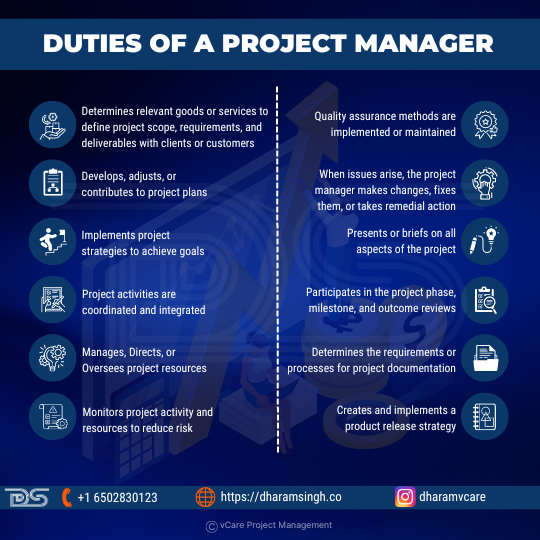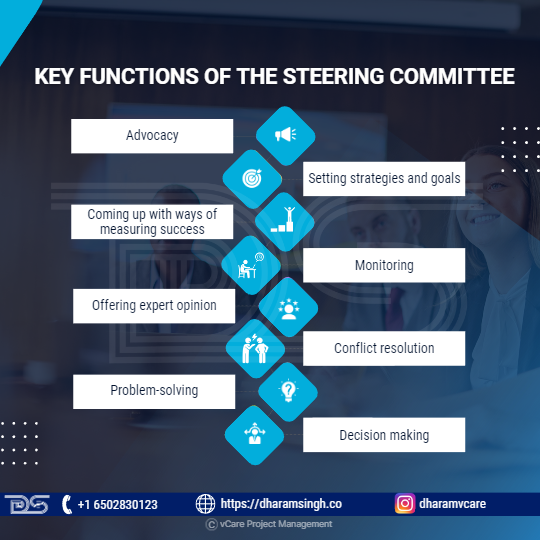
Leadership Strategies in Project Management | PMBOK 7th Edition | vCare | PMI-ATP

Master leadership strategies in project management with insights from PMBOK 7th Edition.


Master leadership strategies in project management with insights from PMBOK 7th Edition.

In this insightful episode, we dive deep into effective strategies for managing multiple projects simultaneously. Join us as we discuss:
🔹 Prioritization, Communication, and KPIs: Master the fundamentals of project management.
🔹 Balancing Multiple Demands: Learn how to prevent burnout while juggling several projects.
🔹 Addressing Stakeholder Differences: Navigate fears and expectations among clients, top management, and project managers.
🔹 Cross-Project Collaboration: Discover best practices and promote a culture of continuous improvement.
🔹 Safe Expression and Participation: Ensure every team member can voice their opinions for project enhancement.
🔹 Managing Complex Client Expectations: Tackle challenges in intricate project environments.
🚀 Seize the opportunity to Elevate Your Project Management Career:
– Register for my upcoming PMI Certification Success Story Webinars: https://bit.ly/4aVhrd6 / https://bit.ly/3QeVhKF
– Book an obligation-free consultation session on Project management Career, training, and certifications: http://talktodharam.com
– Discover training offers and certification discounts: https://bit.ly/3jWVepD
– Stay updated with our Q&A series and certification success stories by subscribing to the vCare Project Management YouTube channel at https://bit.ly/2YF0wJl
– Follow my podcasts and interviews with Project Management Experts on YouTube at https://bit.ly/2NDY8wd

As we navigate the complexities of project management, understanding the core responsibilities of a Project Manager is key to success. I’m breaking down some critical duties that set exceptional Project Managers apart.
A Project Manager is the compass that guides a project’s journey, ensuring that every aspect aligns with the strategic vision:
🔍 Defining scope and deliverables in partnership with clients
📝 Tailoring project plans to dynamic business needs
🎯 Steering project strategies towards goal achievement
🤝 Fostering collaboration for seamless integration of activities
🛠 Managing resources and mitigating risks with precision
🔖 Upholding quality and adapting swiftly to project shifts
🗣 Communicating milestones and driving project reviews
📚 Establishing robust documentation processes
🚀 Orchestrating a strategic product release

Duties of a Project Manager
These roles are not just tasks but the stepping stones to operational excellence and project triumph.
Let’s master the art of project management together!
Elevate Your Project Management Career:
– Book an obligation-free consultation session on Project Management career, training, and certifications: http://bit.ly/2SbhTOK
– Stay updated: Subscribe to our YouTube Channels for more insights: https://bit.ly/2YF0wJl and expert interviews: https://bit.ly/2NDY8wd
– Discover training offers and certification discounts: https://bit.ly/3jWVepD

Project management may be challenging. Addressing changing business demands, allocating limited resources, and managing team workloads can all result in dealing with complicated project management aspects on a day-to-day basis. However, having high-level assistance and guidance can be a lifesaver. Steering committees accomplish precisely that. Project management steering committees give administrative assistance and troubleshoot issues to keep projects on schedule to achieve their objectives.

Steering Committee
A steering committee is an advisory body of important stakeholders overseeing and supporting a project to ensure its success. Project steering committees are also known as stakeholder boards, senior leadership teams, and project working groups. They manage projects from beginning to end, offering direction and assistance throughout the project’s lifecycle.
A steering committee’s primary concern is the organization’s direction, scope, budget, timeline, and techniques. Steering committees will meet regularly to discuss these issues to identify where they are and where they want to go to stay on track.

Project Steering Committee
A steering committee may also be a group working together on initiatives. In this case, steering committees assist project managers in ensuring that projects are aligned with business objectives. They identify and manage risks, maintain project quality, and track progress and timeframes. In addition, the committee can approve changes to the project scope, budget, and strategy.
A project steering committee is a part of a larger organization for project governance. Companies that plan major projects that need collaboration across departments and include multiple stakeholders gain from a steering committee that can direct project management. The committee supervises the team’s progress toward fulfilling benchmarks and goals in this role.
The committee is in charge of project management, financial analysis, and recognizing changes that influence the project’s original scope. Furthermore, the project steering committee ensures that all points of view are heard and that any problems between stakeholders or departments are resolved.
A steering committee can accomplish its core goal by utilizing a range of group and individual functions. When a steering committee gives advice and guarantees that items are delivered on time and in good condition, a company may reap significant benefits from its project successes. Some of the most important group-based steering committee positions that influence a business’s and consumers’ satisfaction with a product include:
Members of the steering committee generally do not work on the project directly; nevertheless, committee members may perform various tasks individually to help assure the project’s success. Therefore, individual steering committee members should understand and strive to improve the strategies used to achieve project goals, be genuinely interested in the project and its outcome, promote the project whenever possible, and maintain a broad understanding of project management concerns, in addition to attending team meetings.

Key Functions of The Steering Committee
A steering committee is an advisory committee made up of various stakeholders and firm officials. They assist in making choices on various initiatives, with members directly interacting with project managers. Here are some of the key functions of the Steering Committee:
A steering committee advocates for the organization’s varied goals and programs. Remember that it is generally composed of top management and specialists.
Steering committees develop strategic directions for initiatives. They also provide advice and opinions on budgeting, assets, money, time, facilities, marketing, and hiring. Goals and project scope are established as part of their employment.
There are several metrics for measuring performance. The steering committee is in charge of establishing how a product’s success is measured.
The steering committee serves as an advisory body as well as a monitoring body. It ensures that projects fulfill the necessary quality standards and monitors any changes. It also keeps track of project processes and plans, which is critical to project success. The committee also analyzes and monitors project or company hazards before devising solutions to mitigate them.
The steering committee comprises experts who provide expert opinions on various issues concerning projects or the entire business. Their involvement is generally required, especially while working on a complex project.
Disagreements are normal, mainly while working on a specific project. However, to ensure that issues do not disrupt the overall project, these committees resolve disputes between stakeholders, giving them more time to focus on what is best.
One of the functions of any advisory body is to discover solutions to problems the organization may be experiencing. It can generate various problem-solving ideas due to the experts on the strategy committee.
Although the steering committee’s primary function is to provide counsel, it also participates in decision-making. For example, it can analyze, accept, or reject project plans or recommend revisions to the supplied plans based on the members’ feedback.
The committee also engages in role allocation because its members can appoint project managers and other professionals to complete assigned tasks.
Important information and documents must be communicated with all steering committee members before the planned meeting, including:
Certain team members should be in charge of creating steering committee meeting documents and scheduling meetings. The steering committee is led by a chairperson who runs the meeting according to the agenda. They also ensure that all committee members express their viewpoints and ideas.
A basic meeting agenda would include the following:

Steering committee Best Practices For Project Success
Consider the following steering committee best practices for project success, whether you hold your meeting online or in person:

Challenges for Steering Committees
Because project management steering committees are comprised of employees from various backgrounds and functions, they will almost always experience certain challenges. These are some examples:
Every organization needs a Project Steering Committee to lead its transformation initiatives, beginning with a contemporary approach to project management. It may be instantly productive by initiating the process of managing project priorities. Steering committees are extremely crucial in efficient project management. They add value by keeping projects on pace, reducing risks, and resolving problems. When creating one, it is essential to evaluate the overall composition.
The steering committee plays a crucial role in project management that should be considered. The steering committee is the project’s administrator. This functionality does not exonerate the project of responsibility. On the contrary, this role necessitates that the steering committee participates in the project and not simply monitors the project group’s performance from the sidelines. This move will strain the steering committee’s multiple tasks and the time spent on the project.
Feel free to check out my discussion on this topic with Justin Buckwalter in YouTube
For any questions related to your Project Management career, training, and certifications, you can book an obligation free 15 minutes session with me by visiting talktodharam.com
You can subscribe to the vCare Project Management YouTube Channel to catch future videos of our Q&A series and certification success stories: https://bit.ly/2YF0wJl
You can subscribe to and follow my podcasts and interviews with Project Management Experts on YouTube at https://bit.ly/2NDY8wd
Leadership plays a crucial role in the success of a project. In Project Management, effective leadership is essential for achieving positive outcomes. The PMBOK 7th Edition highlights various strategies that can improve leadership skills within a project team. Emphasizing skills such as focusing on agreed-upon goals, articulating motivating visions, and fostering collaboration is vital for overcoming obstacles and driving progress. From conflict resolution to promoting self-awareness, every aspect of leadership contributes to a cohesive team and project success.